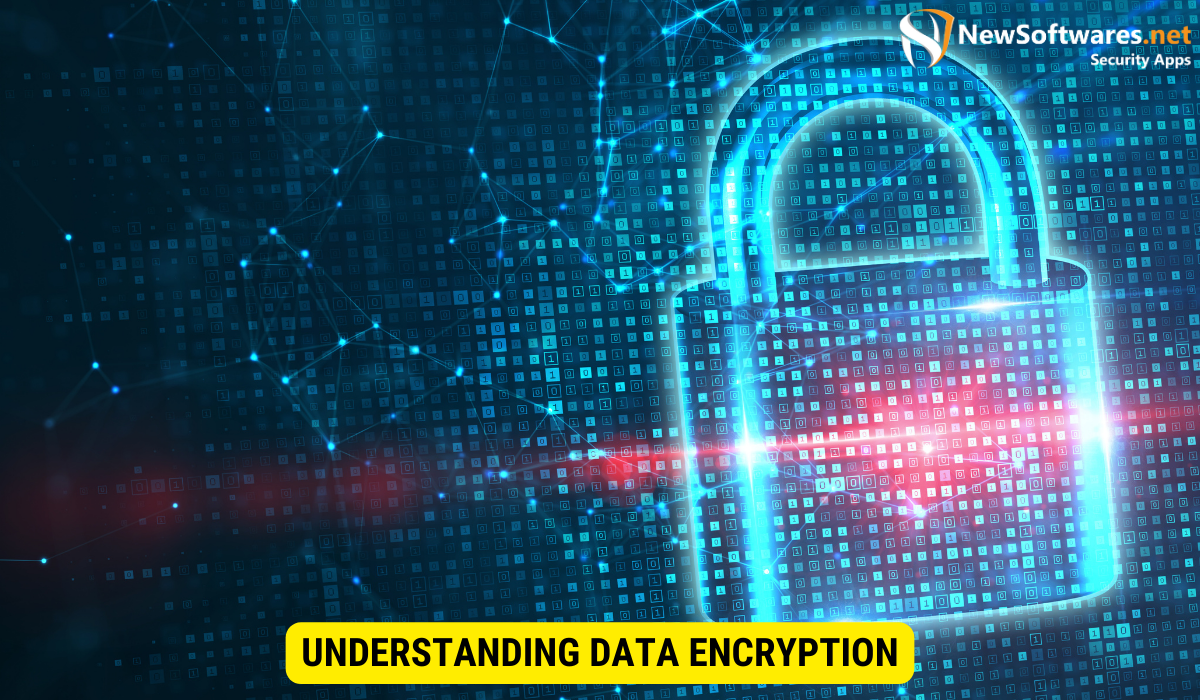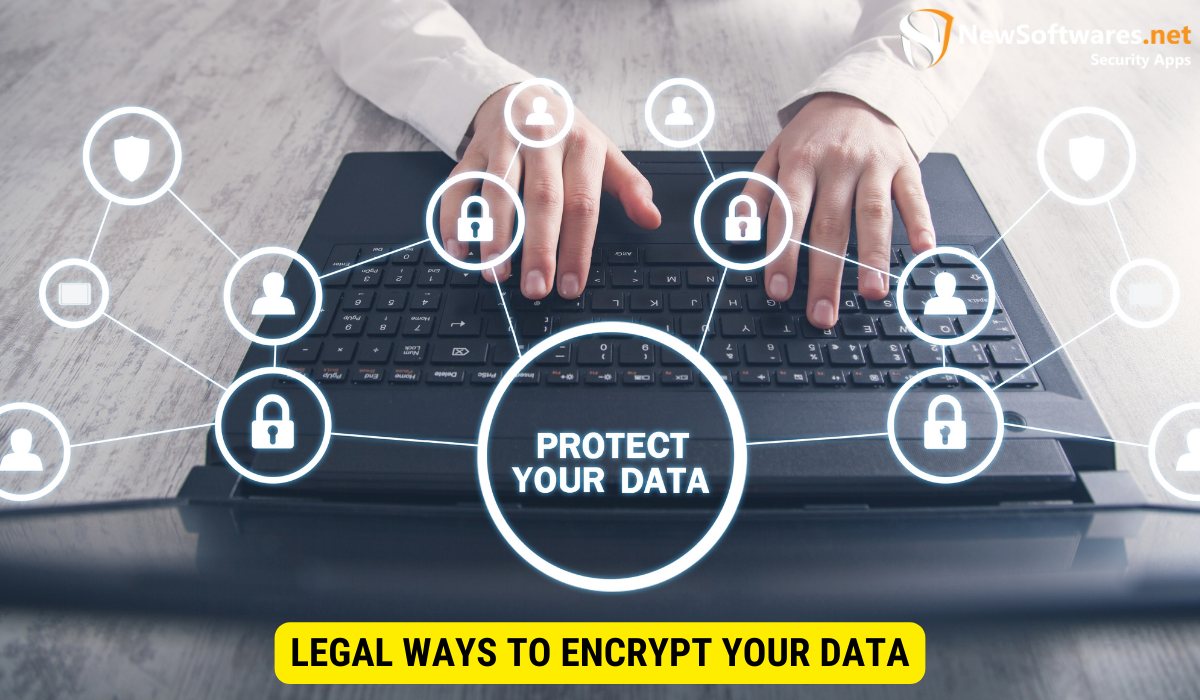No, encrypting your data is not illegal in most situations. However, there may be certain restrictions or regulations depending on your jurisdiction or industry.
Data encryption has become an increasingly important topic in today’s digital world. With concerns about privacy and security on the rise, individuals and businesses are searching for ways to protect their sensitive information. However, there is often confusion surrounding the legality of data encryption. Together, we will explore the intricacies of data encryption and whether it is considered illegal.
Understanding Data Encryption

Data encryption is the method to convert plain text into cipher text, making it unreadable without the appropriate decryption key. This technology is used to safeguard data from unauthorized access, ensuring that only authorized parties can decipher and access the information. Encryption can be applied to various forms of data, including emails, files, and communication channels.
What is Data Encryption?
Data encryption includes the use of complex mathematical algorithms to change data into an unreadable format. The cipher text can only be deciphered with the encryption key, which is only known by authorized parties. Encryption is a fundamental component of new cybersecurity measures, providing one more layer of protection against data breaches and unauthorized access.
Let’s delve deeper into the process of data encryption. When data is encrypted, it undergoes a series of intricate transformations. These transformations are based on mathematical algorithms that manipulate the data, making it incomprehensible to anyone without the encryption key. This ensures that even if an unauthorized personality gets access to the encrypted data, they will not be able to make sense of it.
Furthermore, data encryption employs various encryption algorithms, each with its own unique characteristics and strengths. These algorithms determine how the data is changed and the level of safety provided. Some commonly used encryption algorithms are (AES) Advanced Encryption Standard, RSA, and Triple Data Encryption Standard (3DES).
The Role of Data Encryption in Privacy
Data encryption plays a critical role in preserving privacy. By ensuring that only authorized individuals can decrypt and access sensitive information, encryption helps prevent unauthorized access and data theft. This level of privacy is especially crucial for industries handling sensitive data, such as healthcare, finance, and government organizations.
Imagine a scenario where a healthcare organization stores patient medical records. These records contain highly sensitive information, including medical history, diagnoses, and treatment plans. Without proper encryption, this data could be weak to unlawful access, potentially leading to identity theft or misuse of personal information.
Data encryption provides a robust defense against such threats. It ensures that even if an attacker manages to breach the security measures protecting the data, they will only encounter an unintelligible jumble of characters. The encryption key, held exclusively by authorized individuals, is required to unlock and decipher the data, making it almost impossible for unauthorized parties to gain access to sensitive information.
Moreover, data encryption also plays a crucial role in securing communication channels. When sensitive information is transmitted over networks, encryption ensures that it remains protected from interception and eavesdropping. This is particularly important in today’s interconnected world, where data is constantly being transmitted across various devices and networks.
In conclusion, data encryption is a vital component of modern cybersecurity. It provides a layer of protection that safeguards sensitive information from illegal access and potential data breaches. By employing complex mathematical algorithms and encryption keys, data encryption ensures that only official parties can decipher and access encrypted data, preserving privacy and maintaining the integrity of sensitive information.
The Legal Perspective on Data Encryption
While data encryption is widely recognized as an essential security measure, concerns have been raised regarding its legality. Different countries have varying laws & set of laws concerning the use of encryption technologies. Understanding these legal perspectives can help individuals and organizations ensure they are adhering to the appropriate guidelines.
International Laws on Data Encryption
In many countries, data encryption is legal and seen as a means of protecting sensitive information. However, some nations impose restrictions on the strength of encryption algorithms that can be used. These restrictions are often in place to provide government agencies with the ability to access encrypted data when necessary for national security purposes.
For example, in the United States, the use of encryption is generally allowed and protected under the First Amendment. However, the government has the authority to request access to encrypted data under certain circumstances, such as during criminal investigations or national security threats. The balance between individual privacy and national security is a delicate one, and laws surrounding data encryption aim to strike that balance.
In compare, countries like China and Russia have stricter regulations on data encryption. These nations require companies to provide encryption keys or backdoors to government agencies, enabling them to decrypt data when deemed necessary. These measures have sparked debates about privacy and government surveillance, with proponents arguing that they are necessary for national security, while critics raise concerns about potential abuse of power and violation of individual privacy rights.
Data Encryption and the Right to Privacy
The right to privacy is enshrined in various international human rights instruments. Individuals have the right to protect their personal and sensitive information from unauthorized access. Data encryption allows individuals to exercise this right, providing a tool to safeguard their data and maintain privacy.
Encryption technology ensures that only authorized individuals can access and decipher encrypted data, preventing unauthorized interception or surveillance. This is particularly crucial in an era where cyber threats and data breaches are prevalent. By encrypting their data, individuals can mitigate the risk of their information falling into the wrong hands.
Moreover, data encryption plays a vital role in securing online transactions and communications. When insightful information, for instance credit card details or personal messages, is transmitted over the internet, encryption ensures that the data remains secret and protected from potential eavesdroppers. This not only safeguards individuals’ privacy but also fosters trust in online platforms and promotes e-commerce.
However, the right to privacy is not absolute, and there are instances where governments may argue that access to encrypted data is necessary for law enforcement or national security purposes. Balancing individual privacy rights with the needs of society is an ongoing challenge, and legal frameworks surrounding data encryption aim to strike a delicate balance between these competing interests.
In conclusion, understanding the legal perspective on data encryption is crucial for individuals and organizations to navigate the complex landscape of privacy & security. While encryption is generally recognized as a fundamental tool for protecting sensitive information, different countries have varying laws and regulations that dictate its use. By staying informed about these legal perspectives, individuals and organizations can ensure they are utilizing encryption technologies in a manner that complies with the law while safeguarding their data and privacy.
Misconceptions About Data Encryption
Despite its importance in digital security, there are several misconceptions surrounding data encryption. These misconceptions can lead to misunderstandings and confusion regarding its legality.
The Myth of Illegal Encryption
One common misconception is that encryption itself is illegal. In reality, encryption is a widely accepted and legal security measure used across industries. However, the use of encryption may be subject to certain regulations, especially in high-security sectors or countries with strict encryption policies.
Debunking Common Misunderstandings
Another misconception is that encryption is only used by criminals and individuals engaging in illegal activities. While encryption can be misused by criminals for nefarious purposes, it is equally employed by law-abiding citizens and legitimate organizations to protect sensitive information from cyber threats.
The Implications of Illegal Encryption
While encryption itself is not illegal, there can be implications for using encryption technologies unlawfully. Understanding these implications is important for individuals and businesses seeking to employ secure and legal data encryption practices.
Potential Consequences of Illegal Encryption
Using encryption technologies in violation of applicable laws can lead to severe legal consequences. Depending on the jurisdiction, penalties may include fines, imprisonment, or both. It is essential to comply with lawful requirements regarding encryption to avoid these potential repercussions.
How Illegal Encryption Affects Businesses and Individuals?
Engaging in illegal encryption practices can have significant ramifications for both businesses and individuals. Businesses may face reputational damage, legal battles, and financial losses if found to be using prohibited encryption methods. Likewise, individuals may find themselves subject to legal actions and sanctions, compromising their privacy and security.
Legal Ways to Encrypt Your Data

Fortunately, there are legal and recommended methods for data encryption that individuals and businesses can employ to protect their information while adhering to applicable laws.
Best Practices for Legal Data Encryption
Following best practices is crucial when using encryption technologies. This includes using strong encryption algorithms, employing secure key management processes, and regularly updating encryption protocols to mitigate vulnerabilities. Additionally, working with reputable providers of encryption solutions can ensure compliance with legal requirements.
Tools and Techniques for Legal Data Encryption
A wide range of encryption tools and techniques are available to assist individuals and organizations in implementing legal data encryption practices. From software-based encryption to hardware encryption devices, numerous options cater to various security needs and legal considerations.
Key Takeaways
- Data encryption involves converting plain text into cipher text using complex algorithms, helping protect sensitive information.
- Data encryption is legal in most countries, but certain regulations may be in place depending on jurisdiction and industry.
- Misconceptions about illegal encryption persist, but encryption is widely used for legitimate purposes by law-abiding individuals and businesses.
- Illegal encryption can lead to severe legal consequences, including fines and imprisonment.
- There are legal ways to encrypt data, such as following best practices and using reputable encryption tools.
FAQs
Is encrypting data illegal?
No, encrypting data is not illegal in most situations. However, there may be certain restrictions or regulations depending on your jurisdiction or industry.
Can encryption be used for illegal activities?
While encryption can be misused by criminals, it is also widely used by law-abiding individuals and businesses for legitimate purposes such as protecting sensitive information.
What are the possible consequences of using illegal encryption?
Using encryption technologies illegally can result in severe penalties, including fines & imprisonment, depending on the jurisdiction and applicable laws.
What are the best practices for legal data encryption?
Some best practices for legal data encryption include using strong encryption algorithms, secure key management, and regularly updating encryption protocols to address vulnerabilities.
Are there encryption tools available to ensure legal data encryption?
Yes, there are various encryption tools and techniques available that cater to different security needs and legal considerations. Choosing reputable providers is crucial to ensuring compliance with legal requirements.
Conclusion
Data encryption is a vital tool in safeguarding sensitive information against unauthorized access. While misconceptions surrounding its legality exist, encryption itself is not illegal in most circumstances. However, it is essential to understand and abide by relevant laws and regulations when employing encryption technologies. By following best practices and using reputable encryption tools, individuals and businesses can protect their data legally and maintain their privacy in an increasingly digital world.
